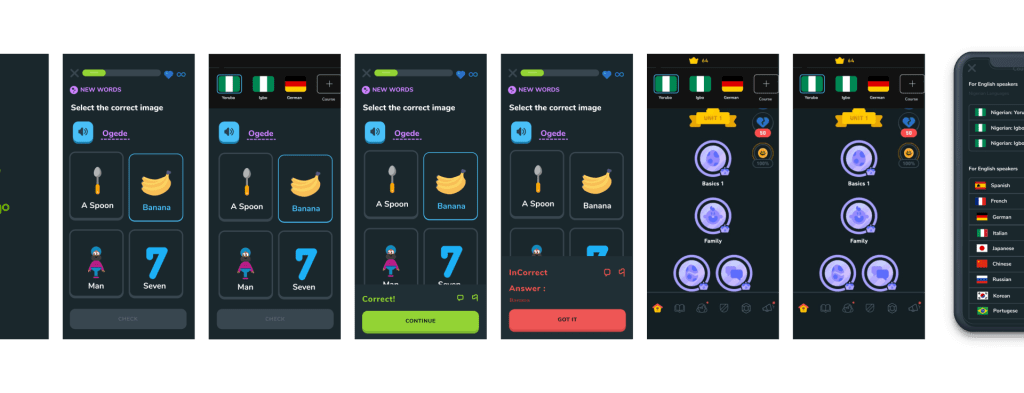Duolingo
Overview
Duolingo should have Nigerian languages.
Roles
- Lead designer
- Interaction designer
- Visual designer
- Prototype
- Project manager
- Design system
Duration
- UX Research - 1 week
- UI Design- 1 week
- Year - 2021
Tools
- Figma
- Miro
Introduction
Duolingo is a language learning tool that can be used by students and teachers as a gamified way to grasp new languages.
From Spanish and French to Korean and Japanese, there are many language options to pick from, and the process of getting stated is very simple. Plus, it’s all free.
This tool works online across a host of devices and focuses on teaching four types of language skills: reading, writing, speaking, and listening.
Duolingo uses points that help to make it more immersive and keep students driven to use it, even outside of school time. Duolingo is the only platform with the resources to make learning of Nigerian languages easy for people all over the world.
Problem
Nigeria is a linguistically diverse nation with over 200 distinct languages and dialects. Yet, a large portion of the population, including Nigerian diaspora and migrant children, struggle to learn or maintain these languages due to a lack of accessible resources.
The Challenge
- Many people in the diaspora, particularly those married to Nigerians, have children who struggle to communicate in the languages of their Nigerian heritage.
- Migrant children born outside Nigeria often face challenges in learning about their culture due to language barriers.
- Ethnic divisions in Nigeria are sometimes perpetuated by language differences, hindering national unity.
65,929
Migrants in UK
15 - 18
Million Nigerians in the diaspora
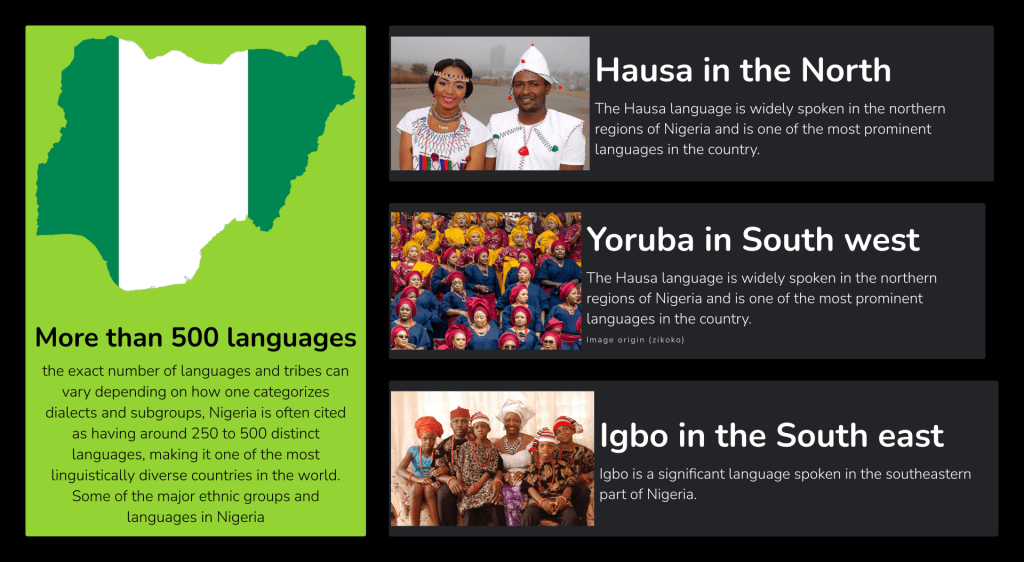
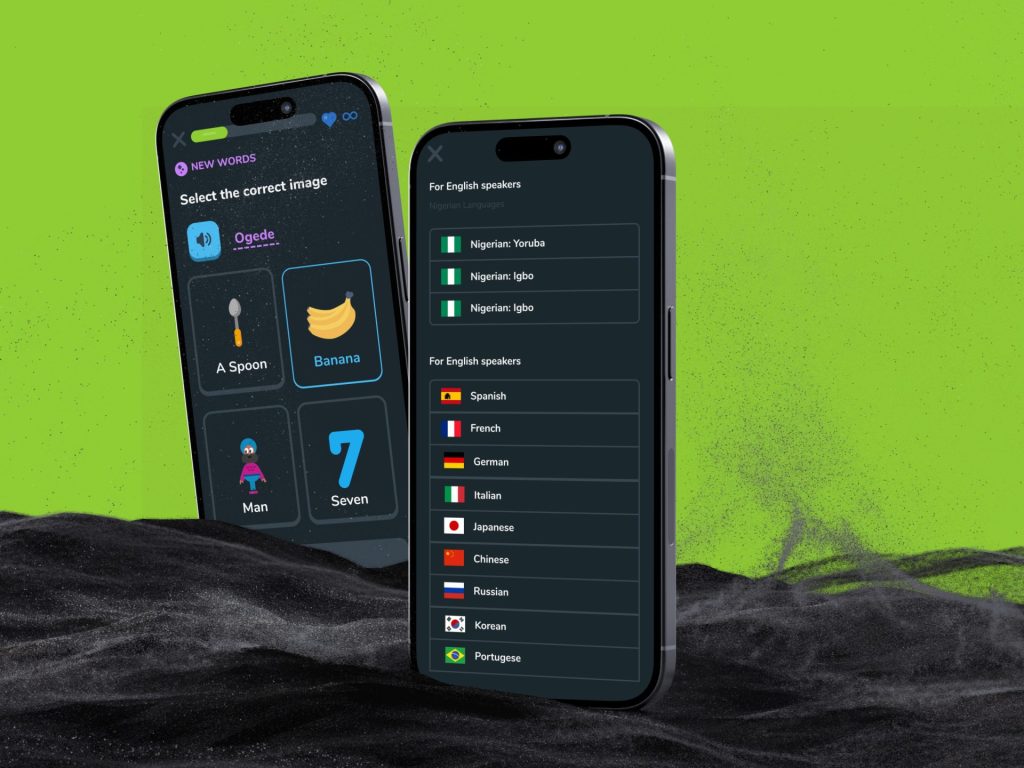
The Goal
The goal of this project is to add Igbo, Yoruba, and Hausa languages to Duolingo to address the language barrier challenges faced by Nigerians and their descendants, promote cultural preservation, and foster national unity.
Design Process or Thinking Process
Understand
Understand the problem and gather up requirement
UX research
Scenario, User journey map,user stories
Design
Information architecture,sketch flows, visual designs, prototype
Validate
Iterate
Research
Benchmark Analysis

User Personas
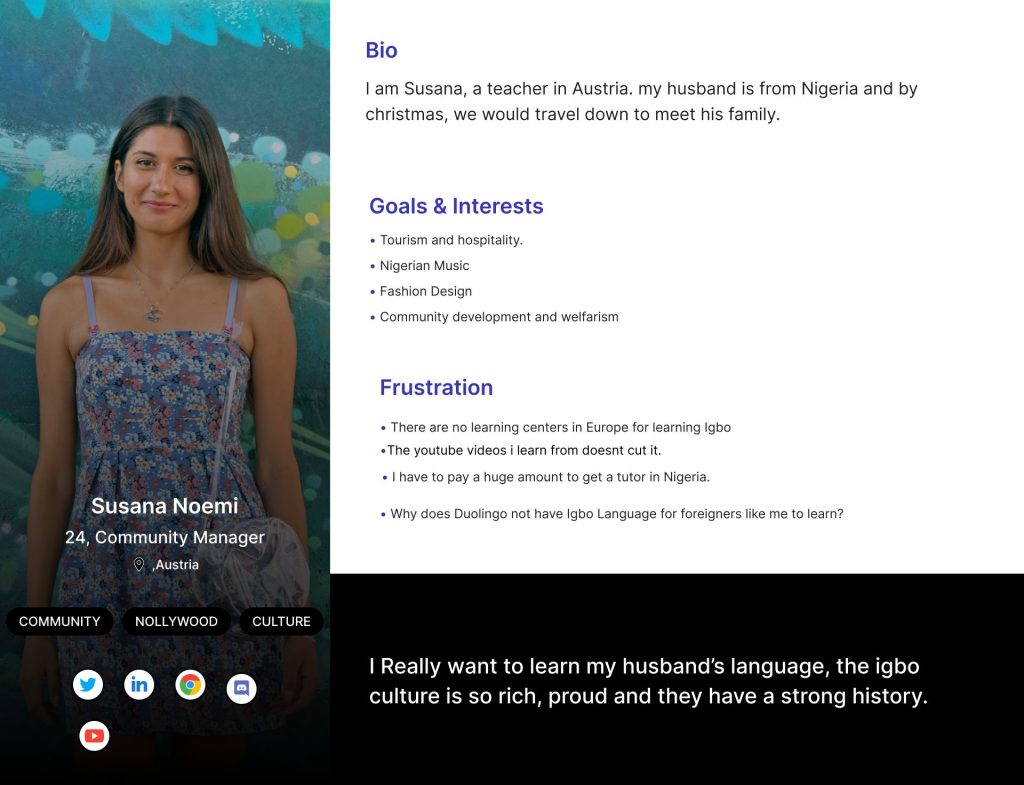
Susan
Susan is married to a Nigerian man and she loves the Nigerian culture. Afro beats is just what everyone is into globally and her favorite Nigerian artists are Rema, Davido and Burna boy. She is quite conversant with the trends and would love to connect deeper with her partners people by learning a Nigerian language.
Like Susan , there are thousands of people in Europe who are married or affiliated with Nigerian people who cant find a platform to learn Yoruba, Igbo or Hausa.
The Adewale's
Like the Adewale family, there are millions of Nigerians all over the world who have kids who may never be able to speak thier cultural language. Duolingo is essential to the survival of Nigerian languages for people in the diaspora.
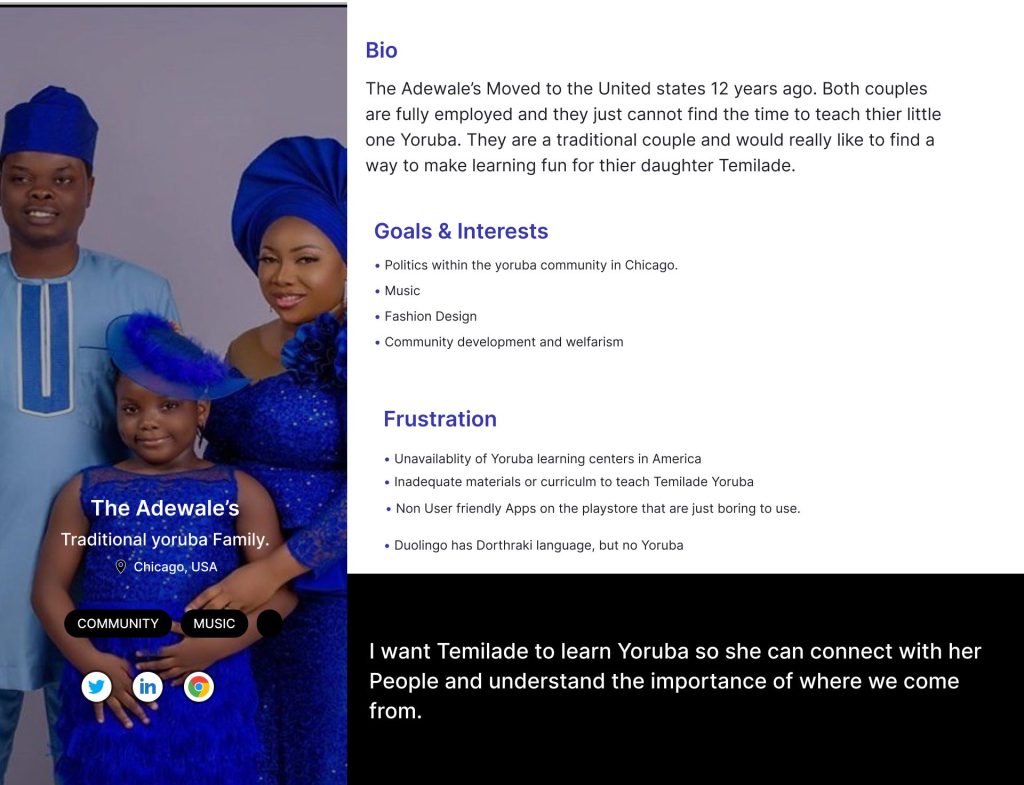
Visual Designs
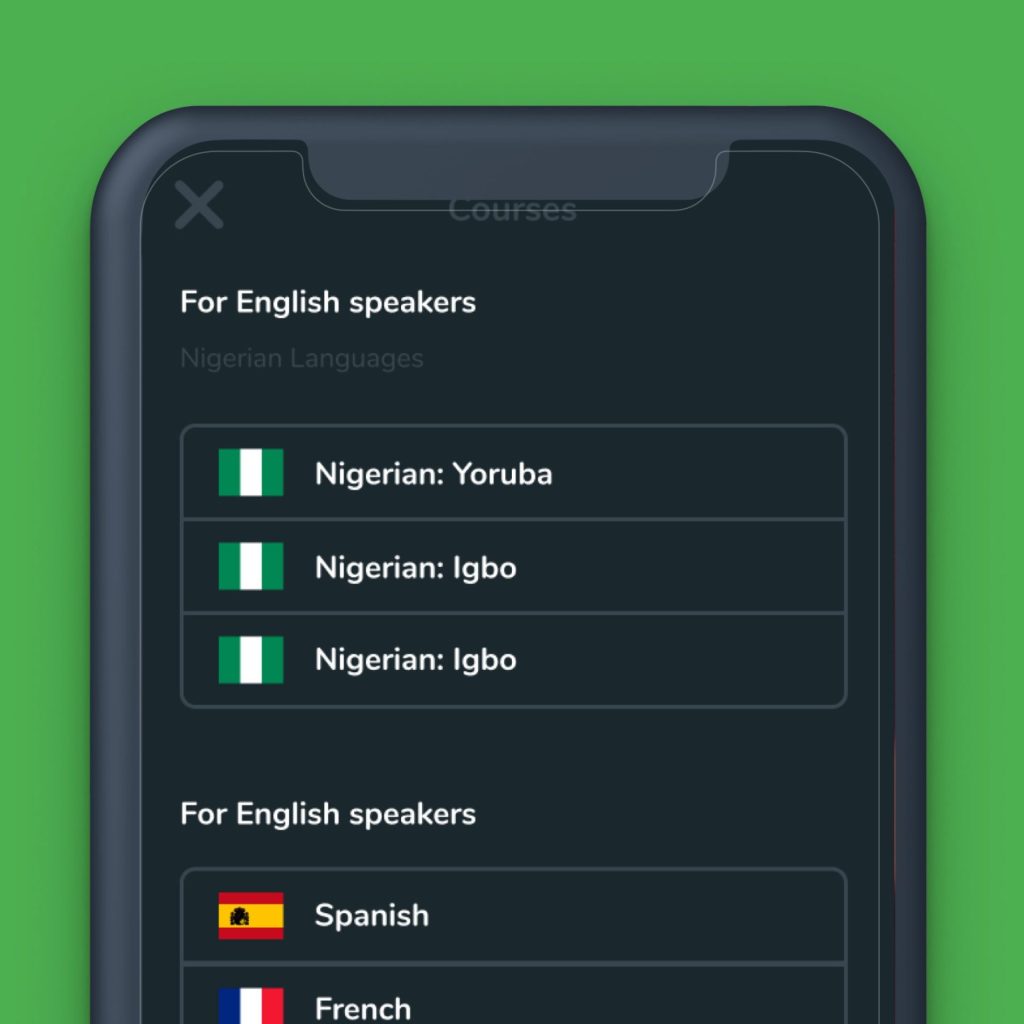
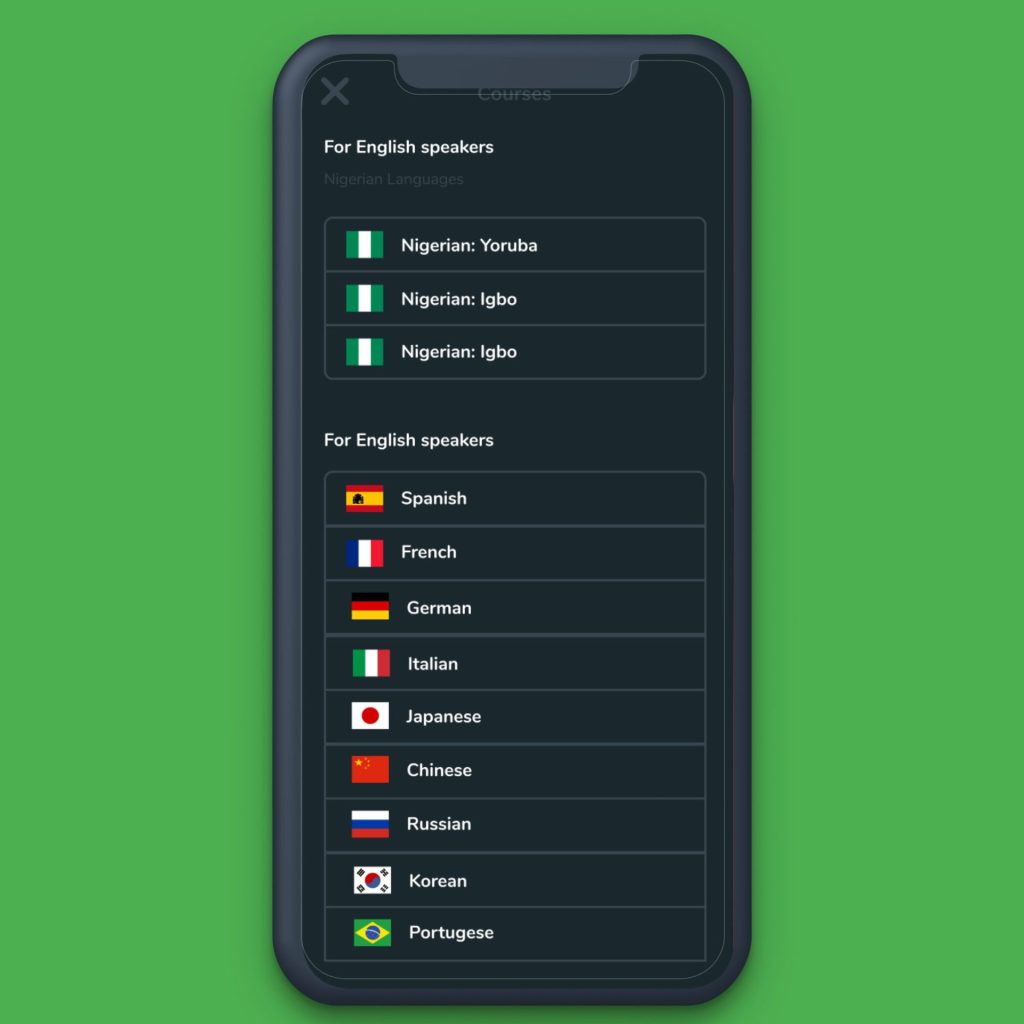
The language you are actively studying can be selected and more added. There should be a way to differentiate visually which nigerian language you are currently taking.
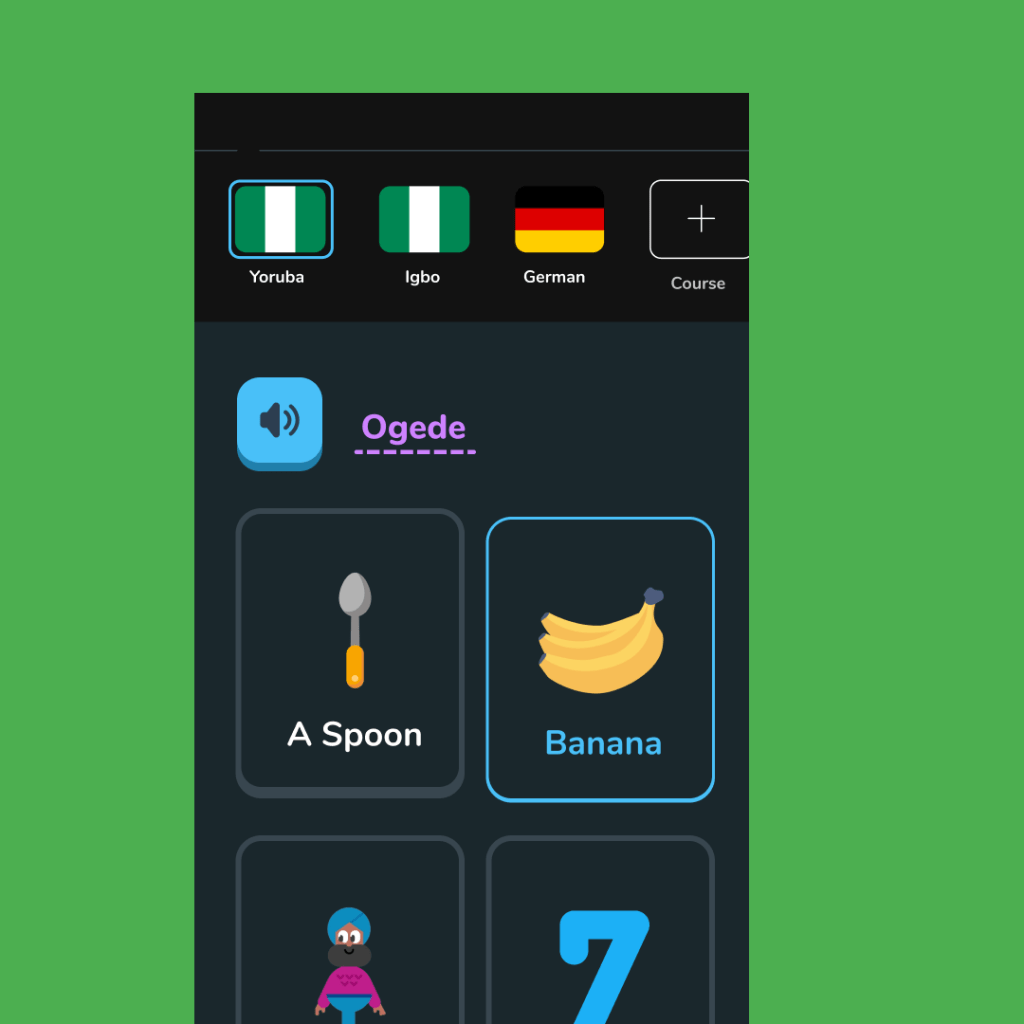
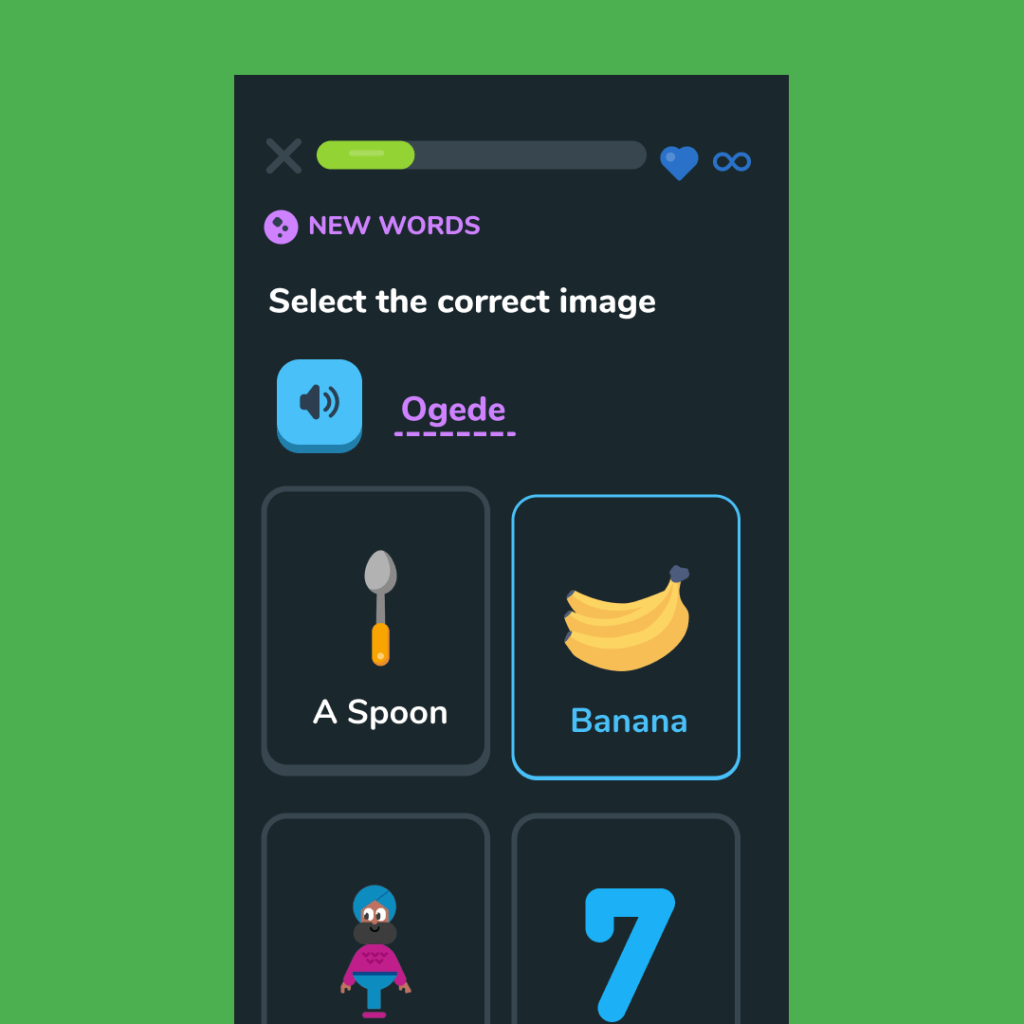
Outcome and impact
The addition of Igbo, Yoruba, and Hausa languages to Duolingo had several positive outcomes:
- Increased Cultural Preservation: Migrant children and their families now have access to their native languages, fostering a deeper connection to Nigerian culture.
- Ethnic Division Mitigation: Learning Nigerian languages can help bridge linguistic divides and promote unity in a country with diverse ethnic groups.
- User Engagement: The gamified approach to language learning on Duolingo keeps users motivated to learn Nigerian languages.
- Global Reach: Duolingo’s extensive user base has facilitated the spread of Nigerian languages to a global audience.
